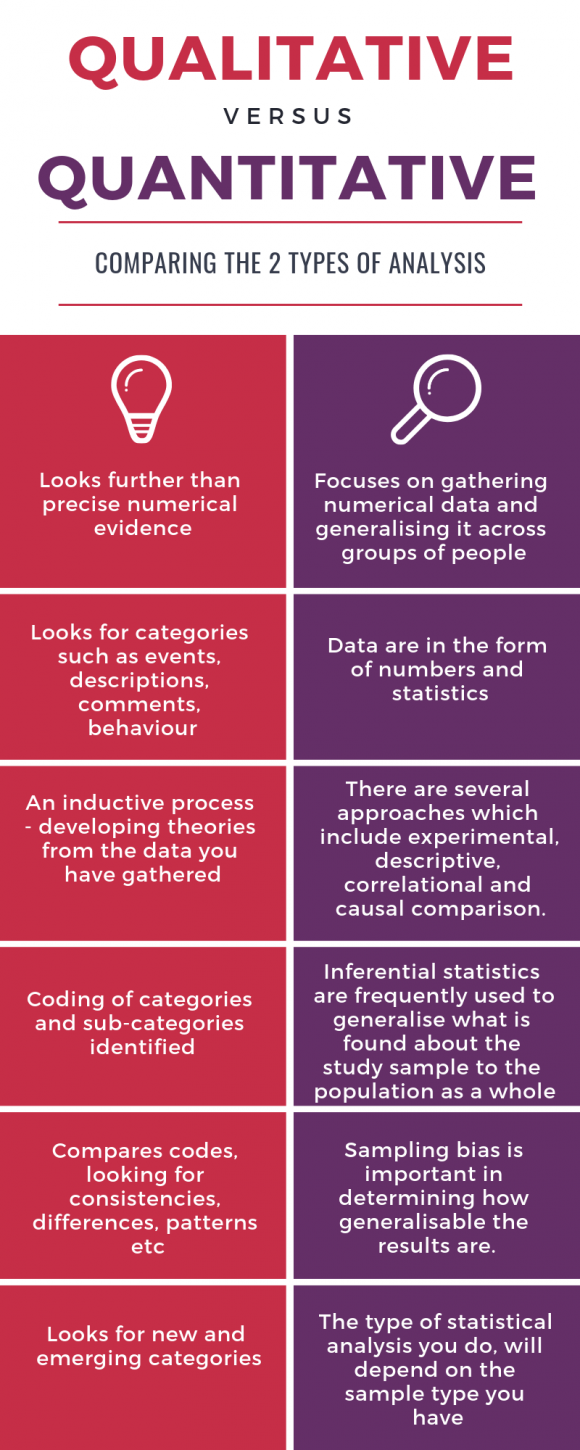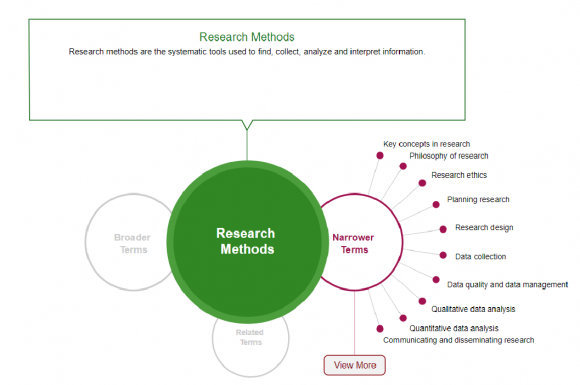At some point in research the question “Which research method are you using?” comes up. For some disciplines (law as an example), the methods are almost pre-set, while other disciplines (such as the social sciences) have a much wider choice.
Research methods come down to two basic types: qualitative and quantitative. Quantitative (indicating that the data collected is in numerical form) and qualitative (indicating that the data collected is not in numerical form).
Often discipline determines which one:
Quantitative – the sciences, as most experimental data results in numerical data.
Qualitative – the humanities and social sciences (including law), as most data worked with is textual or informational, and not quantitative.
A useful summary of the differences between the two is here:

Over time, the social sciences and humanities have started to include quantitative methods as well, introducing a new category called mixed methods. This refers to a mixture of both qualitative and quantitative methods being used in the research.
Because of this, it often seems that research methodology books lean heavily towards the social sciences, as most authors that have written about research methods come from the social sciences.
However, these books speak to the concept of research methods and can be used across disciplines.
A great source for exploring research methodology is the database Sage Research Methods Online . This database has a great methods map, letting you delve deeper or wider into different methodologies and data collection techniques.

This is a great database loaded with information for those feeling slightly confused about research methods, or just needing some up to date sources to help.
There are also many helpful books in the library on research methodology – a useful shelf number is 300.72. In general though, if you are browsing in your subject area – look for books that are at the beginning of the shelves, and ending in .072 in number, and those will be related to research methodologies in your discipline.
Great article
All sounds like a jigsaw puzzle to me. Don’t know why I have never understood that topic ‘research’. Maybe someone needs to pry my head open to put it inside.
The article sounds great though.
Research means to search again and again, using scientific tools which is why it sounds so wierd